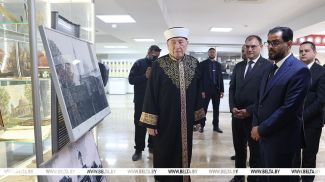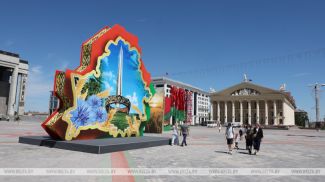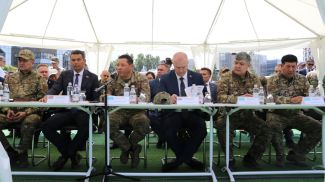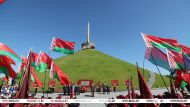MINSK, 16 December (BelTA) – The West's sanctions against Belarus have the purpose to set people against the president and make the life of Belarusians worse, Sergei Musiyenko, director of the EcooM think tank, told the media as he commented on the results of the opinion poll "Belarus. A Vision of the Future”, BelTA has learned.
Survey participants believe that the purpose of the collective West's sanctions against Belarus is to turn people against the president (19.1%), make the life of Belarusians worse (17.9%), make the Belarusian economy uncompetitive in the global market (15.5%), make Belarus dependent on the collective West (12%), prevent further development of the Union State of Belarus and Russia (11%), and to work out a scenario of pressure on Russia (7.9%).
There were some changes in citizens' assessments if compared to the results of a similar previous poll. More and more citizens perceive the sanctions as an instrument of “angering the people against the president of the country” - the number of people who chose this option increased from 7.4% to 19.1%. The number of answers “to make our life worse” decreased from 25.2% to 17.9%, and “to work out a scenario of pressure on Russia” - from 17.6% to 7.9%.
In the run-up to the national referendum, the Institute of Sociology at the National Academy of Sciences of Belarus jointly with the EcooM think tank conducted the public opinion poll “Belarus. A Vision of the Future”. The survey was carried out from 15 November to 4 December 2021 and polled 10,217 respondents, mainly economically active population. The sampling was multi-stage, stratified (by region and type of settlement), with quotas by sex and age. The study covered all regions of Belarus, Minsk, 52 districts (including 9 districts of the capital city), almost 350 organizations and enterprises in various sectors and of different forms of ownership.
Citizens welcomed the survey and the interest of sociologists in their position and assessments. People perceived the survey as an opportunity to convey their opinion about the current processes and the future of the country. Citizens spoke in favor of conducting more sociological research. During a lively discussion with the pollsters, respondents raised issues of water supply, construction of social and leisure infrastructure facilities, quality and accessibility of medical care, and other issues. All requests and complaints were documented and submitted to the local authorities.













